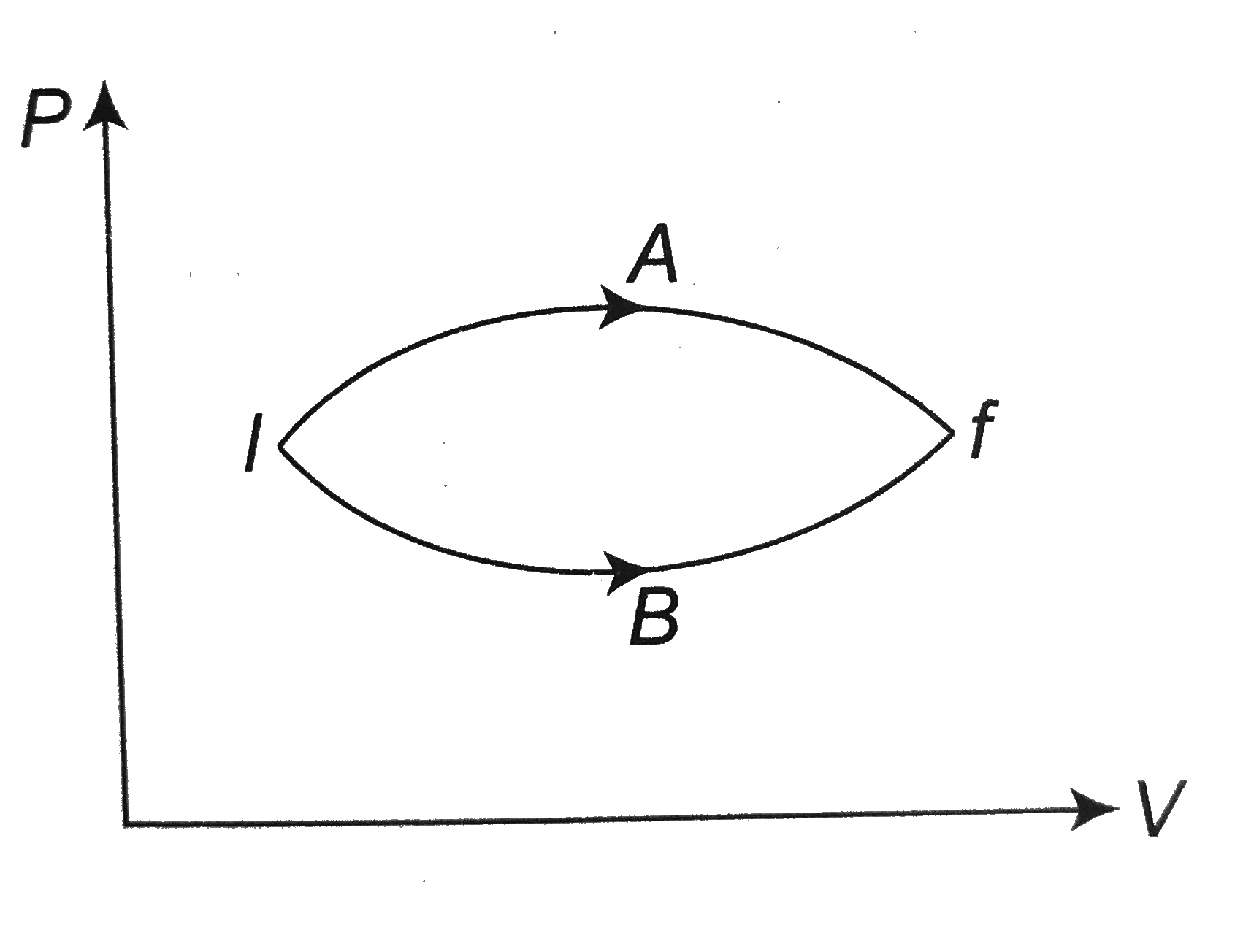Which thermodynamic parameter is not a state function :-
q at constant pressure
q at constant volume
w at adiabatic
w at isothermal
The correct Answer is:D
To determine which thermodynamic parameter is not a state function, we need to analyze each of the given options. A state function is a property that depends only on the state of the system, not on the path taken to reach that state. In contrast, a path function depends on the specific way a process occurs.
Let's evaluate each option step by step:
1. Q at constant temperature (ΔH):
- At constant temperature, the heat exchanged (Q) is related to the change in enthalpy (ΔH).
- ΔH depends only on the initial and final states of the system.
- Therefore, ΔH is a state function.
2. Q at constant volume (ΔU):
- At constant volume, the heat exchanged (Q) corresponds to the change in internal energy (ΔU).
- ΔU also depends only on the initial and final states of the system.
- Hence, ΔU is a state function.
3. W at adiabatic process:
- In an adiabatic process, there is no heat exchange (Q = 0).
- The work done (W) can be expressed using the first law of thermodynamics: ΔU = Q + W.
- Since ΔU depends on the initial and final states, W in an adiabatic process is also determined by these states.
- Thus, W in an adiabatic process is a state function.
4. W at isothermal process:
- In an isothermal process, the temperature remains constant.
- The work done (W) depends on the specific path taken during the process (e.g., the volume change).
- Therefore, W at constant temperature is a path function and does not depend solely on the initial and final states.
Conclusion:
The thermodynamic parameter that is not a state function is W at isothermal process (option D).
- At constant temperature, the heat exchanged (Q) is related to the change in enthalpy (ΔH).
- ΔH depends only on the initial and final states of the system.
- Therefore, ΔH is a state function.
- At constant volume, the heat exchanged (Q) corresponds to the change in internal energy (ΔU).
- ΔU also depends only on the initial and final states of the system.
- Hence, ΔU is a state function.
- In an adiabatic process, there is no heat exchange (Q = 0).
- The work done (W) can be expressed using the first law of thermodynamics: ΔU = Q + W.
- Since ΔU depends on the initial and final states, W in an adiabatic process is also determined by these states.
- Thus, W in an adiabatic process is a state function.
- In an isothermal process, the temperature remains constant.
- The work done (W) depends on the specific path taken during the process (e.g., the volume change).
- Therefore, W at constant temperature is a path function and does not depend solely on the initial and final states.
The thermodynamic parameter that is not a state function is W at isothermal process (option D).
Topper's Solved these Questions
- THERMODYNAMICS BOOK - ALLENCHAPTER - THERMODYNAMICS EXERCISE - EXERCISE -1B
22 Videos
- THERMODYNAMICS BOOK - ALLENCHAPTER - THERMODYNAMICS EXERCISE - EXERCISE -2
100 Videos
- THERMODYNAMICS BOOK - ALLENCHAPTER - THERMODYNAMICS EXERCISE - Questions
46 Videos
- TEST PAPERSBOOK - ALLENCHAPTER - TEST PAPERSEXERCISE - MATHEMATICS
2 Videos
- Thermodynamics And Thermo ChemistryBOOK - ALLENCHAPTER - Thermodynamics And Thermo ChemistryEXERCISE - All Questions
40 Videos
Similar Questions
Which is not state function ?
View SolutionWhich one is a state function :-
View SolutionWhich of the following properties is not a state function ?
View SolutionWhich among the following given properties is not a state function
View SolutionSome of the thermodynamic parameters are state variables while some are process variables. Some grouping of the parameters are given. Choose the correct one.
View SolutionWhich one of the following is not a state function?
View SolutionAs a rubber band is stretched, it gets warmer, when released, it gets cooler. The correct sign of thermodynamic parameters for stretching of rubber band is
View SolutionWhich of the following is not a state function?
View SolutionIn the figure given two processes AandB are shown by which a thermodynamic system goes from initial state I to final state F. if ΔQA and ΔQB are respectively the heats supplied to the systems then

View SolutionWhich of the following parameters does not characterize the thermodynamic state of matter?
View Solution